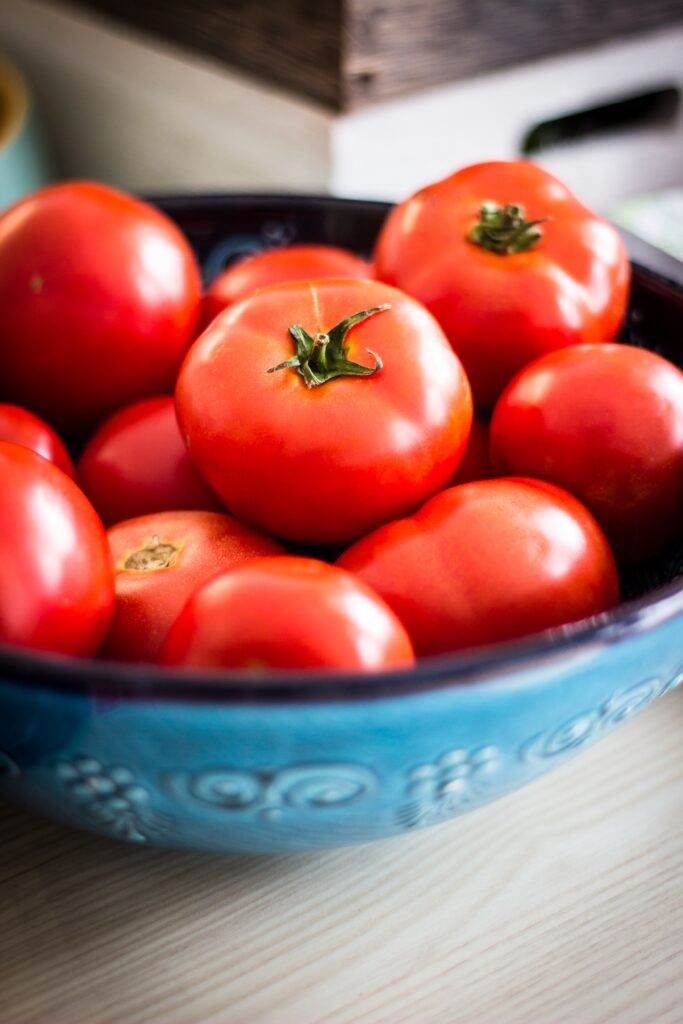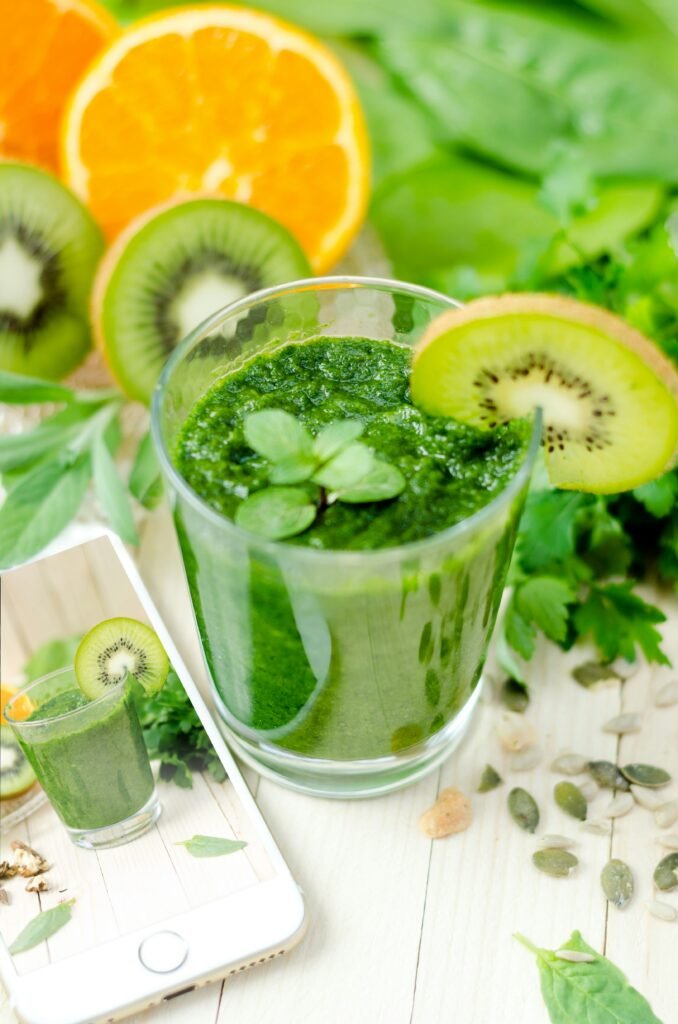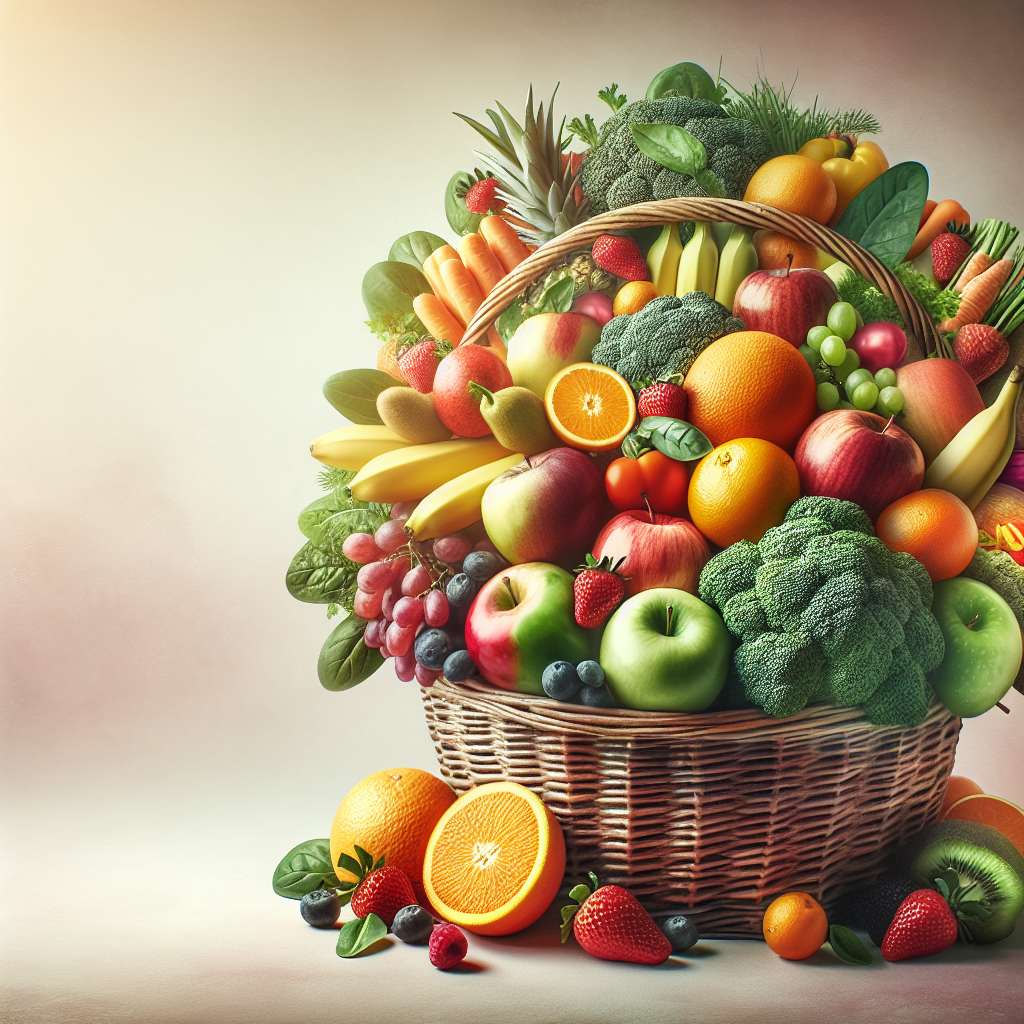Are you looking for simple and natural ways to boost your immunity? Look no further than the impact of fruits and vegetables! Packed with essential vitamins, minerals, and antioxidants, these colorful additions to your diet can work wonders for your immune system. From citrus fruits like oranges and lemons, rich in vitamin C, to leafy greens like spinach and kale, bursting with antioxidants, incorporating a variety of fruits and vegetables into your meals can help protect your body and keep you feeling healthy and strong. So why not give your immunity a helping hand by adding more nature’s goodness to your plate?
Health benefits of fruits
Rich in vitamins and minerals
Fruits are rich in vitamins and minerals, making them an essential part of a healthy diet. They are packed with nutrients such as vitamin C, vitamin A, potassium, and folate, which are vital for the proper functioning of our body. These vitamins and minerals help in maintaining healthy skin, promoting eye health, supporting bone health, and regulating blood pressure.
Source of antioxidants
Antioxidants are compounds that help protect our cells from damage caused by free radicals. Fruits are a great source of antioxidants, which help in reducing oxidative stress and inflammation in the body. Antioxidants neutralize the harmful effects of free radicals and play a crucial role in preventing chronic diseases like heart disease, cancer, and Alzheimer’s.
Boosts immune system
One of the key benefits of consuming fruits is their ability to boost the immune system. Fruits like citrus fruits (oranges, lemons, and grapefruits), berries, kiwi, papaya, watermelon, and pineapple are known for their high vitamin C content, which helps strengthen the immune system. Vitamin C stimulates the production of white blood cells, which are vital for fighting off infections and diseases.
Fiber content for gut health
Fruits are a great source of dietary fiber, which is essential for maintaining a healthy digestive system. Fiber adds bulk to the stool and helps in preventing constipation. It also aids in regulating blood sugar levels and promoting a feeling of fullness, which can help with weight management. Including fruits in your diet ensures you get an adequate amount of fiber, which is crucial for gut health.
Specific fruits for immunity boosting
Citrus fruits
Citrus fruits, such as oranges, lemons, and grapefruits, are known for their high vitamin C content. Vitamin C has been shown to boost the production of white blood cells, which are essential for fighting off infections. Consuming citrus fruits regularly can help strengthen your immune system and protect against common illnesses.
Berries
Berries like strawberries, blueberries, raspberries, and blackberries are packed with antioxidants and vitamins that support immune function. They are rich in vitamin C, fiber, and antioxidants like anthocyanins, which have been shown to reduce inflammation and enhance immune response.
Kiwi
Kiwi is another fruit that is rich in vitamin C, vitamin K, and other essential nutrients. It has been found to have immune-boosting properties and can help fight off respiratory infections and common colds. Kiwi also contains antioxidants that protect against cellular damage and support overall health.
Papaya
Papaya is a tropical fruit that is not only delicious but also rich in nutrients. It contains a high amount of vitamin C, along with other vitamins and minerals like folate, potassium, and magnesium. Papaya has immune-stimulating effects and can help in improving overall immunity.
Watermelon
Watermelon is a refreshing fruit that is perfect for staying hydrated during the summer months. It is also a good source of vitamins A and C, as well as antioxidants like lycopene. These nutrients play a crucial role in supporting the immune system and protecting against harmful free radicals.
Pineapple
Pineapple is a tropical fruit that is known for its unique and sweet taste. It contains bromelain, an enzyme that has anti-inflammatory properties and aids in digestion. Pineapple is also rich in vitamin C, manganese, and other essential nutrients that help boost immune function and promote overall health.

Health benefits of vegetables
Packed with essential nutrients
Vegetables are a powerhouse of essential nutrients that are vital for the proper functioning of our body. They are rich in vitamins, minerals, and antioxidants, making them an important part of a balanced diet. Consuming a variety of vegetables ensures that you get a wide range of nutrients that support overall health and wellbeing.
Great source of dietary fiber
One of the key benefits of vegetables is their high fiber content. Fiber is crucial for maintaining a healthy digestive system and promoting regular bowel movements. It aids in preventing constipation, supports gut health, and can even help in managing weight by providing a feeling of fullness.
Promotes healthy digestion
Vegetables are known to promote healthy digestion due to their high fiber content. They help in preventing digestive issues like constipation, bloating, and indigestion. The fiber in vegetables adds bulk to the stool, making it easier to pass through the digestive tract and maintain regularity.
Supports overall health and wellbeing
Including vegetables in your diet is essential for overall health and wellbeing. They provide essential vitamins and minerals that are important for various bodily functions. Vegetables like leafy greens, bell peppers, broccoli, garlic, ginger, and spinach are rich in antioxidants, which help in reducing inflammation and supporting a healthy immune system.
Specific vegetables for immunity boosting
Leafy green vegetables
Leafy green vegetables like spinach, kale, and Swiss chard are packed with vitamins A, C, and K, as well as minerals like iron and calcium. They are also a rich source of antioxidants, which help in boosting the immune system and protecting against various diseases.
Bell peppers
Bell peppers, especially the red ones, are high in vitamin C and antioxidants. Vitamin C is known to enhance immune function and protect against oxidative stress. Including bell peppers in your diet can provide a significant boost to your immune system.
Broccoli
Broccoli is a nutrient-dense vegetable that is rich in vitamins A, C, and K, as well as fiber and antioxidants. It contains a compound called sulforaphane, which has immune-boosting properties and supports overall health. Broccoli is also known for its anti-inflammatory effects and can help in reducing chronic inflammation.
Garlic
Garlic is not only used as a flavorful ingredient in cooking but also has numerous health benefits. It contains a compound called allicin, which has been shown to have antimicrobial and immune-enhancing properties. Regular consumption of garlic can help in preventing and fighting off common illnesses.
Ginger
Ginger is known for its medicinal properties and has been used for centuries to treat various ailments. It has anti-inflammatory and antioxidant effects, which help in strengthening the immune system. Ginger also aids in digestion and can soothe an upset stomach, making it a great addition to your diet.
Spinach
Spinach is a leafy green vegetable that is rich in vitamins A, C, and K, as well as iron and antioxidants. It is highly nutritious and can support immune function and overall health. Adding spinach to your diet can help in boosting your immune system and protecting against diseases.

How fruits and vegetables boost immunity
Provide essential nutrients for optimal immune function
Fruits and vegetables are packed with essential nutrients that play a key role in supporting immune function. Nutrients like vitamins A, C, and E, as well as minerals like zinc and iron, help in the production and functioning of white blood cells, which are essential for fighting off infections and diseases.
Contain antioxidants to combat free radicals
Antioxidants are compounds that help protect our cells from damage caused by free radicals. Fruits and vegetables are rich in antioxidants like vitamin C, vitamin E, beta-carotene, lycopene, and flavonoids. These antioxidants neutralize the harmful effects of free radicals, reduce inflammation, and support a healthy immune system.
Support gut health and microbiome
The health of our gut plays a crucial role in our overall wellbeing, including immune function. Fruits and vegetables, especially those high in fiber, support gut health by promoting the growth of beneficial bacteria in the gut, known as the microbiome. A healthy gut microbiome is essential for a strong immune system.
Reduce inflammation in the body
Chronic inflammation can weaken the immune system and make us more susceptible to diseases. Certain fruits and vegetables, like berries, leafy greens, broccoli, and garlic, contain compounds with anti-inflammatory properties. Including these foods in your diet can help reduce inflammation and support a healthy immune system.
Vitamins and minerals in fruits and vegetables
Vitamin C
Vitamin C is a powerful antioxidant found in many fruits and vegetables. It plays a vital role in boosting the immune system, promoting wound healing, and supporting the absorption of iron.
Vitamin A
Vitamin A is essential for maintaining healthy skin, promoting good vision, and supporting proper immune function. Vegetables like carrots, sweet potatoes, and leafy greens are excellent sources of vitamin A.
Vitamin E
Vitamin E is a fat-soluble antioxidant that protects cells from damage caused by free radicals. Nuts, seeds, and leafy greens are rich sources of vitamin E.
Vitamin D
While it is primarily obtained through sunlight exposure, vitamin D can also be found in certain fruits and vegetables like mushrooms. It is important for bone health and supports immune function.
Zinc
Zinc is a mineral that plays a crucial role in immune function and wound healing. It can be found in foods like pumpkin seeds, beans, and spinach.
Iron
Iron is necessary for the production of red blood cells and oxygen transport in the body. Leafy greens, nuts, and legumes are excellent sources of iron.

Antioxidants in fruits and vegetables
Vitamin C
Vitamin C is a potent antioxidant found in citrus fruits, berries, and kiwi. It helps neutralize free radicals, reduce inflammation, and support immune function.
Vitamin E
Vitamin E is a powerful antioxidant found in nuts, seeds, and leafy greens. It protects cells from oxidative stress and supports overall health.
Beta-carotene
Beta-carotene is a precursor to vitamin A and has antioxidant properties. Fruits and vegetables like carrots, sweet potatoes, and spinach are rich in beta-carotene.
Lycopene
Lycopene is a red pigment found in tomatoes, watermelon, and other red fruits and vegetables. It has antioxidant properties and supports heart health.
Flavonoids
Flavonoids are a group of antioxidants found in various fruits and vegetables, such as berries, citrus fruits, and onions. They have anti-inflammatory effects and promote overall health.
How to incorporate more fruits and vegetables into your diet
Have a variety of colors
Including a variety of colorful fruits and vegetables in your diet ensures that you get a wide range of nutrients. Aim to have a mix of green, red, yellow, orange, and purple fruits and vegetables to maximize the nutritional benefits.
Include them in every meal
Make it a habit to include fruits and vegetables in every meal. Fill half of your plate with vegetables or fruits to ensure that you are getting a good amount of nutrients with every meal.
Try new recipes
Experiment with different cooking methods and recipes to make fruits and vegetables more enjoyable. Roasting, grilling, and stir-frying can add flavor and variety to your meals.
Replace unhealthy snacks with fruits and vegetables
Instead of reaching for unhealthy snacks like chips or cookies, choose fruits and vegetables as your go-to snacks. Keep pre-cut fruits and vegetables in your refrigerator for easy access.
Drink fruit and vegetable juices or smoothies
If you find it challenging to consume enough fruits and vegetables, consider drinking juices or smoothies made from fresh produce. This can be a convenient way to boost your nutrient intake.

Tips for retaining maximum nutrients from fruits and vegetables
Eat them fresh and raw
Eating fruits and vegetables in their fresh and raw form ensures that you get the maximum amount of nutrients. Cooking can often result in nutrient loss, so try to include raw fruits and vegetables in your diet whenever possible.
Avoid overcooking
Overcooking vegetables can lead to a loss of nutrients. Cook your vegetables until they are just tender to retain their nutritional value.
Steam or lightly sauté
Steaming or lightly sautéing vegetables preserves their nutrients while making them more palatable. Avoid overcooking or frying, as it can diminish the nutritional benefits.
Store them properly
Proper storage of fruits and vegetables is essential to maintain their freshness and nutrient content. Keep them in a cool and dry place, and avoid storing them for too long, as the nutrient content may degrade over time.
Choose organic options
Organic fruits and vegetables are grown without the use of synthetic pesticides and fertilizers, which can lead to a higher nutrient content. Whenever possible, choose organic options to maximize the nutritional benefits.
Conclusion
Fruits and vegetables play a crucial role in boosting the immune system and supporting overall health and wellbeing. They are rich in vitamins, minerals, antioxidants, and fiber, which provide numerous health benefits. Incorporating a variety of fruits and vegetables into your daily diet ensures that you get the essential nutrients needed for optimal immune function. So, make it a priority to include these nutrient-packed foods in your meals to reap their immunity-boosting benefits.


